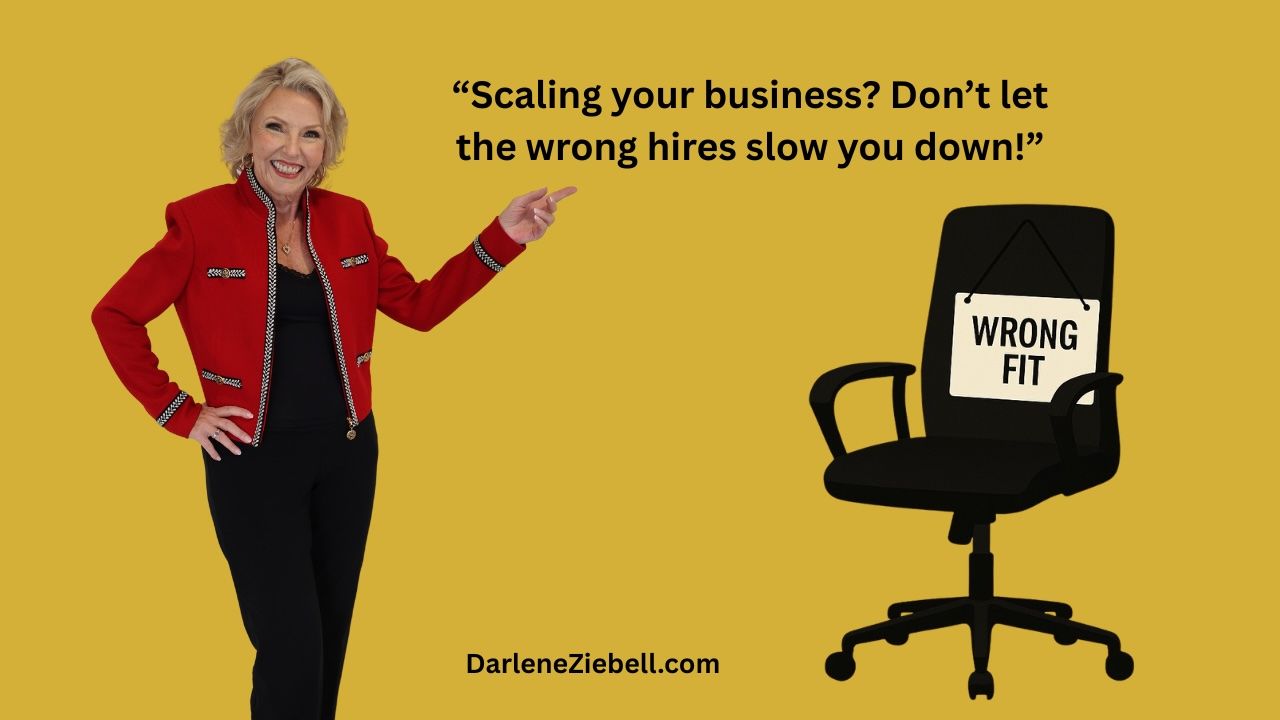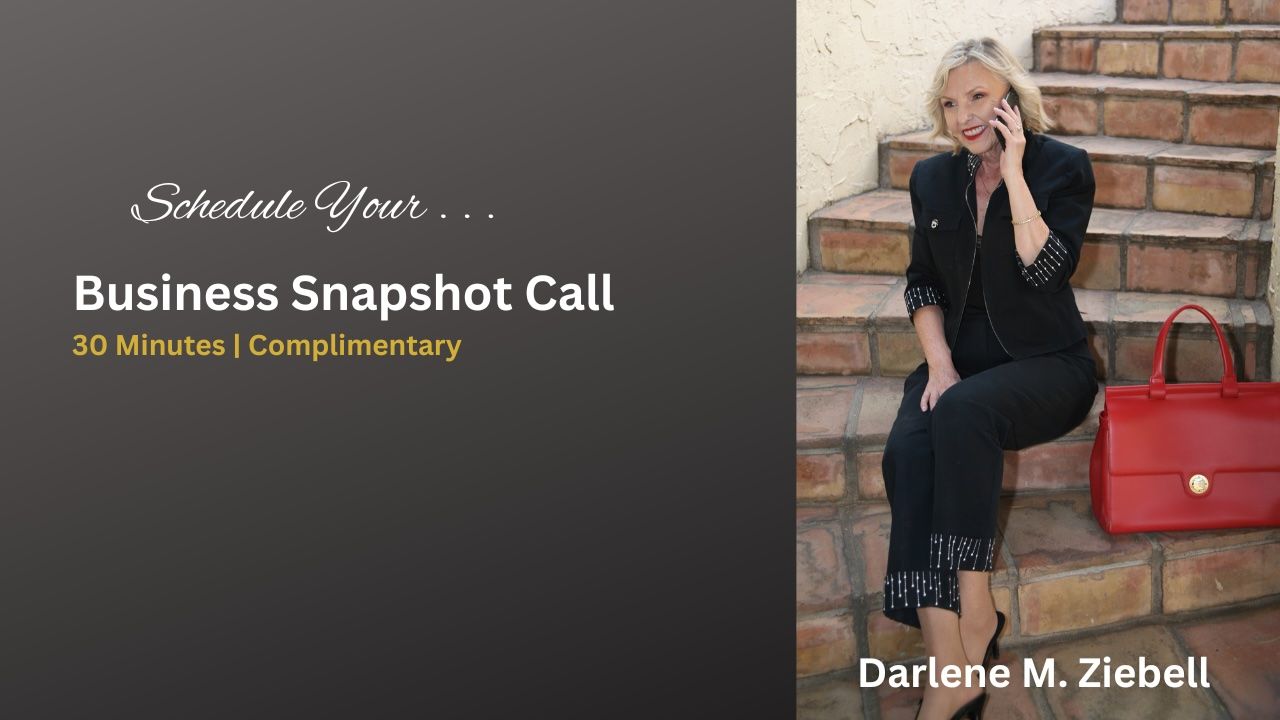Hiring the Wrong People: The Silent Killer of Small Business Growth
Aug 26, 2025
Hiring the Wrong People: The Silent Killer of Small Business Growth
Scaling a small business is exciting. You’ve proven that your product or service works, customers are buying, and the future looks promising. But then it happens—you hit a wall. Growth slows, operations drag, and you can’t figure out why your business feels stuck.
Here’s one of the most common culprits I’ve seen in over 30 years of advising companies: hiring the wrong people too early.
Why Good Intentions Lead to Bad Hires
Small business owners don’t start out trying to sabotage their own growth. They hire people they know and trust—former colleagues, neighbors, or even family members. On the surface, this feels safe. These are people you’re comfortable with, and they often step in quickly when you’re overwhelmed.
The problem? Most of these hires happen before a proper job description is written, before a clear role is defined, and before a business owner maps out the skills needed for future growth.
Without that clarity, you’re filling seats with people—sometimes loyal, sometimes talented—but not necessarily the right fit for where your business needs to go.
The Hidden Cost of Hiring Too Soon
Hiring the wrong people doesn’t always look like failure at first. In fact, many of these employees keep the wheels turning in the early stages. But when your business begins to scale, cracks start to show:
-
Projects slow down. Growth requires specialized skills, and without them, momentum stalls.
-
Your time disappears. Instead of delegating effectively, you end up managing people who can’t fully own their roles.
-
Frustration grows. You start asking yourself why sales aren’t climbing or why operations feel stuck in the mud.
The truth is, your team was never built to handle scaling. They were hired to “help out,” not to drive the business to the next level.
Why Job Descriptions Matter More Than You Think
A proper job description isn’t just paperwork—it’s a growth tool. It forces you to define:
-
What outcomes you expect from the role
-
What skills and experience are non-negotiable
-
How the role fits into your larger business strategy
When business owners skip this step, they end up hiring based on familiarity instead of need. That’s how you wind up with a bookkeeper trying to do CFO-level strategy or a family member managing marketing without the expertise to generate measurable results.
The Moment Scaling Demands a Real Team
Scaling is about more than increasing sales—it’s about building infrastructure. At this stage, you need people who not only know how to do the work but can anticipate challenges, solve problems, and grow with the business.
Here’s the shift I coach business owners to make:
-
Stop hiring for loyalty. Start hiring for capability. Trust matters, but growth demands expertise.
-
Define roles before you fill them. Write the job description, outline the metrics for success, and only then look for the right candidate.
-
Audit your current team. Some of your early hires may be great cultural fits but not growth drivers. Decide who can be retrained, reassigned, or replaced.
-
Think ahead. Hire not just for where you are today but for where your business will be 12–24 months from now.
How I’ve Seen This Play Out
I’ve advised owners who came to me frustrated because their once-thriving business had flatlined. After digging in, I found the same pattern again and again:
-
A seven-figure company relying on friends in key roles who had never run operations at scale.
-
Family members promoted into leadership without the skills to make strategic decisions.
-
Business owners themselves spending hours “fixing” team mistakes instead of focusing on growth.
Once we rebuilt their hiring strategy—clarifying roles, setting accountability metrics, and recruiting qualified candidates—growth picked back up.
Bottom Line
Hiring people you know isn’t automatically a mistake, but hiring without strategy is. If you want your small business to grow into a true enterprise, you must stop filling positions out of convenience and start building a team that can carry your vision forward.
Scaling doesn’t stall because of lack of opportunity—it stalls because the wrong people are in the wrong seats.
👉 If you’re ready to build the right team and avoid costly hiring mistakes, hire me—a professional who can help you create job descriptions that drive growth instead of stall it.
FAQs for Small Business Owners on Scaling and Hiring
Why do small businesses hire family and friends?
Small businesses hire family and friends because it feels safe, fast, and easy. But without clearly defined roles, these hires often slow down growth instead of supporting it.
Is hiring people I know always a bad idea?
Hiring people you know is not always a bad idea, but it becomes risky if you skip creating a proper job description. They must have the skills your business needs to scale.
How do I know if my team is holding back growth?
You know if your team is holding back growth when projects stall, you spend too much time managing instead of leading, or revenue isn’t climbing despite opportunities in the market.
What’s the best hiring strategy for scaling?
The best hiring strategy for scaling is to define roles clearly, hire for where your business will be in 12–24 months, and focus on capability over loyalty.
Announcing The 1% Edge
If you like this blog article, check out my newsletter The 1% Edge. Designed to help business owners who want to thrive and reach their next 7 figures in business.


